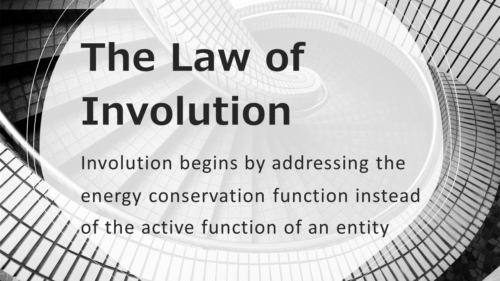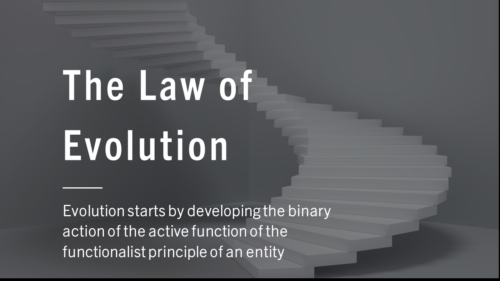Managing the DNA of Business Processes
Unicist Conceptual Management, that is a paradigm shift in business management, is the synthesis of the nature of business management. It includes the management of the future scenario that allows designing a strategy, the knowledge of the root-causes of problems and the root-drivers of business processes, the development of the conceptual design to define these processes and the development of the maximal and minimum strategy actions to ensure results.

The concepts and fundamentals of unicist conceptual management provide the knowledge base to develop cognitive systems for businesses.
The Unicist Research Institute has been, since 1976, the pioneer in complexity sciences applied to evolution. It developed the first scientific approach to understand and manage social and institutional evolution as adaptive environments.
It was one of the precursors of the 4th Industrial Revolution that introduced the unicist ontogenetic maps to manage complexity to deal with adaptive systems. It develops the necessary knowledge, technologies and cognitive systems, using Unicist Artificial Intelligence, to manage social and business environments as adaptive systems. These solutions are provided to the market by its business arm and academic arm.
Developments
Main Markets
• Automobile • Food • Mass consumption • Financial • Insurance • Sports and social institutions • Information Technology (IT) • High-Tech • Knowledge Businesses • Communications • Perishable goods • Mass media • Direct sales • Industrial commodities • Agribusiness • Healthcare • Pharmaceutical • Oil and Gas • Chemical • Paints • Fashion • Education • Services • Commerce and distribution • Mining • Timber • Apparel • Passenger transportation –land, sea and air • Tourism • Cargo transportation • Professional services • e-market • Entertainment and show-business • Advertising • Gastronomic • Hospitality • Credit card • Real estate • Fishing • Publishing • Industrial Equipment • Construction and Engineering • Bike, motorbike, scooter and moped • Sporting goods
Country Archetypes Developed
• Algeria • Argentina • Australia • Austria • Belarus • Belgium • Bolivia • Brazil • Cambodia • Canada • Chile • China • Colombia • Costa Rica • Croatia • Cuba • Czech Republic • Denmark • Ecuador • Egypt • Finland • France • Georgia • Germany • Honduras • Hungary • India • Iran • Iraq • Ireland • Israel • Italy • Japan • Jordan • Libya • Malaysia • Mexico • Morocco • Netherlands • New Zealand • Nicaragua • Norway • Pakistan • Panama • Paraguay • Peru • Philippines • Poland • Portugal • Romania • Russia • Saudi Arabia • Serbia • Singapore • Slovakia • South Africa • Spain • Sweden • Switzerland • Syria • Thailand • Tunisia • Turkey • Ukraine • United Arab Emirates • United Kingdom • United States • Uruguay • Venezuela • Vietnam





